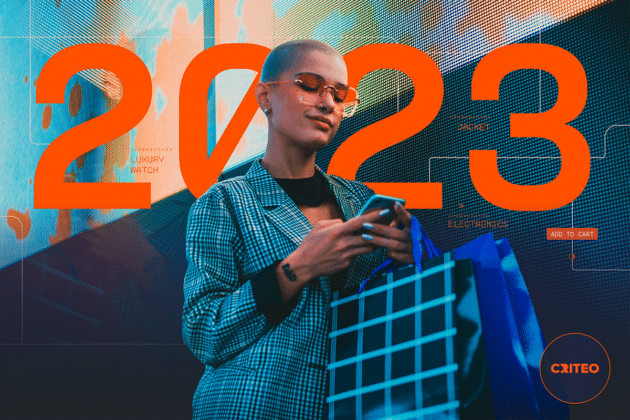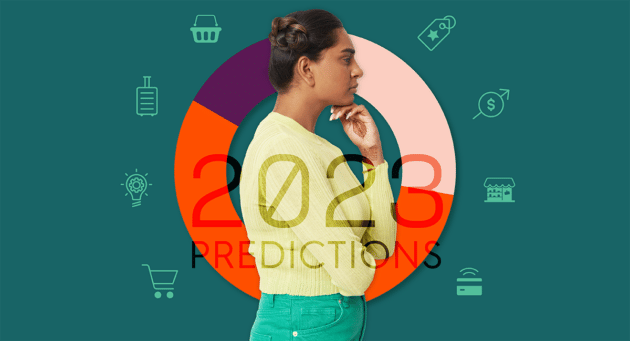Marketing with machine learning is only possible with data. A form of artificial intelligence (AI) that enables computers to learn without explicit programming, machine learning (ML) can essentially enable a computer to “figure it out for itself,” leveraging data to continually optimize. The more data, the smarter the AI gets.
Our research with Forbes Insights revealed that most marketers are already investing heavily in data initiatives. Machine learning helps teams make the most of the data by diving deeper into shopper behavior, creating dynamic content, and enabling personalization at scale.
Here’s how machine learning marketing solutions can help with marketing campaigns:
1. Usable real-time data
You might have access to more data than you know what to do with, and the data by itself means nothing without context. Machine learning allows you to define which types of data to automatically collect as well as what types of “lessons” the machine learning algorithms should learn, thus providing context for different types of data.
Collecting real-time data allows machine-learning algorithms to implement insights at the exact moment certain interactions are taking place. For instance, when it comes to retargeting campaigns, shoppers can see ad content and design that can change in real-time based on their behaviors.
2. Deeper shopper insights
A campaign backed by machine learning can analyze if a shopper liked a certain type or style of ad, and decide what to show on the shopper’s next engagement. Similarly, machine learning can geotarget shoppers based on location, providing them with relevant content across channels, connecting their offline purchases to their online browsing behavior.
This allows marketers to create more personalized experiences for shoppers, based on the insights gathered from their data.
3. Dynamic content
Machine learning can help hone in on what type of content marketers need to create to speak to their target audience. Certain solutions can even be used to personalize and build the content.
Bookmark.com, an AI-powered website building platform, uses machine learning to build custom websites. Bookmark’s AI technology, called the Artificial Intelligence Design Assistant – or AiDA – learns each user’s unique needs from a few nuggets of client information such as name, location, and type of business.
“We build each customer a unique website that fits their specific business and industry needs,” says CEO David Kosmayer.
Using the information provided, AiDA’s crawls competitor websites along with any information about a client’s business or public found across Google, Facebook, and other social channels. AiDA then determines which components, colors, and layouts would be most optimal and relevant for each website. Machine learning helps AiDA improve with each new website it builds.
4. Improve shopper experiences
In addition to using machine learning to create personalized and engaging websites, Bookmark is also looking to implement AI into their shopper service efforts.
“We don’t think that it should stop [at the product],” says Kosmayer, “We’ve looked into using AI in our shopper service efforts to understand a user’s needs and identify their potential issues before they realize it.”
The idea is to use machine learning to provide their shoppers with quality, personalized support that speaks expressly to their individual experiences with Bookmark’s platform.

Another way for marketers to improve shopper experiences is by using machine learning to better understand human language through natural language processing (NLP), and respond accordingly. An example of this is the growing use of chatbots as customer service portals, where machines respond to human queries. The more questions they field, the better they get at delivering the answers and service shoppers are looking for.
With such services as Apple’s Siri or Amazon’s Alexa, marketers are particularly well positioned to observe how shoppers are interacting with these services and use the data gathered to develop speech recognition (so programs quickly recognize the shopper’s voice), and sentiment analysis.
5. Eliminate redundancy and optimize budgets
Machine learning has the potential to make marketing more precise and cost effective. Marketers can use real-time behavioral data to target audiences and improve the chances of converting browsers into paying shoppers.
Machine learning also cuts down on overall marketing costs, since programs require less manpower. Criteo’s dynamic retargeting technology is a prime example. Our programmatic video and display ads are tailored using machine learning and automatically delivered to shoppers throughout their path to purchase.
Additionally, machine learning allows marketers to communicate with shoppers via automated emails and social posts, and use machine learning to figure out which channels – both offline and online – to invest resources in.
Machine Learning for Success in Data-Driven Marketing
The value of machine learning lies in the ability to create opportunities from data and it’s already changing the way marketers manage their campaigns. From producing trillions of dynamic ad variations to formatting them across platforms in milliseconds, machine learning frees up creative staff to focus on creative ideas and strategy.
Our Smart Marketer’s Guide to Machine Learning helps you gain a better understanding of what Machine Learning is. It explores machine learning applications from medical diagnoses to smart car innovations, and can help you understand how machine learning powers marketing personalization.















